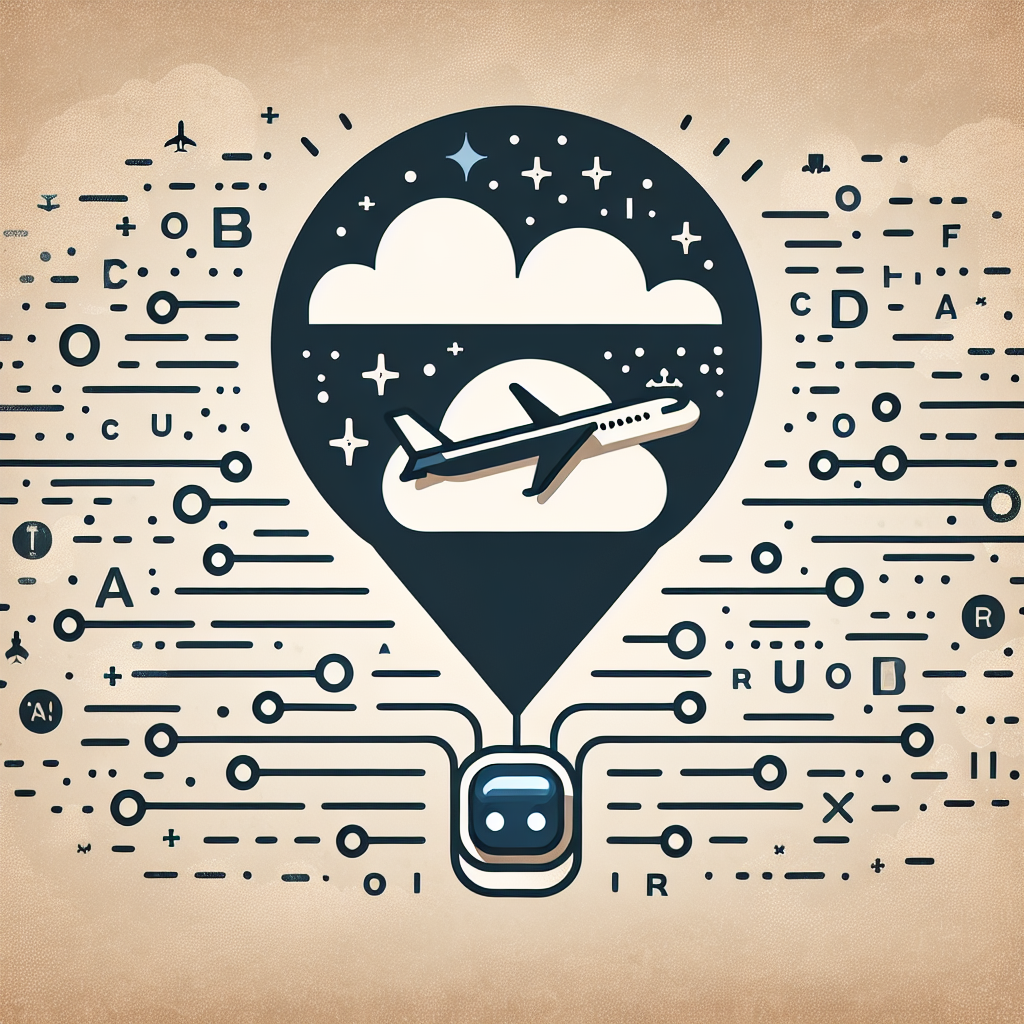Conversational AI, also known as chatbots or virtual assistants, has been making waves in various industries, including aviation. This technology is revolutionizing the way airlines interact with passengers, providing a more personalized and efficient experience. From booking flights to answering customer inquiries, conversational AI is transforming the aviation industry in numerous ways.
One of the key benefits of conversational AI in aviation is enhancing the passenger experience. With the rise of digitalization, passengers are increasingly expecting instant and personalized responses to their queries. Conversational AI enables airlines to provide real-time assistance to passengers, whether they are looking for flight information, checking in for their flight, or requesting in-flight services. This not only improves the overall customer experience but also helps airlines streamline their operations and reduce costs.
Conversational AI is also playing a crucial role in improving safety in aviation. By integrating AI-powered chatbots into their systems, airlines can monitor and analyze data in real-time to identify potential safety risks and take proactive measures to mitigate them. For example, chatbots can track weather conditions, air traffic congestion, and other factors that may affect flight operations, allowing airlines to make more informed decisions and ensure the safety of their passengers and crew.
Furthermore, conversational AI can assist airline staff in handling emergency situations more efficiently. In the event of a crisis, such as a medical emergency or a security threat, chatbots can provide real-time guidance and support to cabin crew and ground staff, helping them respond quickly and effectively to ensure the safety and well-being of passengers.
In addition to enhancing passenger experience and safety, conversational AI is also driving innovation in the aviation industry. Airlines are leveraging AI-powered chatbots to introduce new services and features that cater to the evolving needs of passengers. For example, some airlines have implemented virtual assistants that can help passengers book flights, select seats, and even order meals based on their preferences. This level of personalization not only enhances the passenger experience but also helps airlines build stronger relationships with their customers.
Moreover, conversational AI is enabling airlines to collect valuable customer data and insights that can be used to optimize their operations and marketing strategies. By analyzing the interactions between passengers and chatbots, airlines can gain a better understanding of customer preferences, behaviors, and trends, allowing them to tailor their services and offerings to meet the needs of their target audience more effectively.
Despite the many benefits of conversational AI in aviation, some passengers may have concerns about the use of this technology. To address these concerns, airlines should be transparent about how they use chatbots and ensure that passengers have the option to speak to a human agent if needed. Additionally, airlines should prioritize data security and privacy to protect passengers’ personal information and ensure that it is not misused or compromised.
Overall, conversational AI is transforming the aviation industry by enhancing passenger experience, improving safety, driving innovation, and providing valuable insights for airlines. As this technology continues to evolve, we can expect to see even more exciting developments that will further enhance the way we travel and interact with airlines.
FAQs:
Q: How does conversational AI enhance passenger experience in aviation?
A: Conversational AI enables airlines to provide real-time assistance to passengers, whether they are looking for flight information, checking in for their flight, or requesting in-flight services. This not only improves the overall customer experience but also helps airlines streamline their operations and reduce costs.
Q: How does conversational AI improve safety in aviation?
A: By integrating AI-powered chatbots into their systems, airlines can monitor and analyze data in real-time to identify potential safety risks and take proactive measures to mitigate them. Chatbots can track weather conditions, air traffic congestion, and other factors that may affect flight operations, allowing airlines to make more informed decisions and ensure the safety of their passengers and crew.
Q: How is conversational AI driving innovation in the aviation industry?
A: Airlines are leveraging AI-powered chatbots to introduce new services and features that cater to the evolving needs of passengers. For example, some airlines have implemented virtual assistants that can help passengers book flights, select seats, and even order meals based on their preferences. This level of personalization not only enhances the passenger experience but also helps airlines build stronger relationships with their customers.
Q: What concerns do passengers have about the use of conversational AI in aviation?
A: Some passengers may have concerns about the use of conversational AI, such as privacy and data security. Airlines should be transparent about how they use chatbots and ensure that passengers have the option to speak to a human agent if needed. Additionally, airlines should prioritize data security and privacy to protect passengers’ personal information and ensure that it is not misused or compromised.

